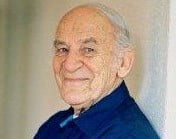PLT for Gilles De La Tourette’s Syndrome: A Research Study – Ronald van der Maesen (Is.16)
Ronald van der Maesen, M.A.
 Ronald van der Maesen, of the Netherlands, is a newcomer to the Journal’s pages. Here he presents the results of his research on using past-life therapy for people suffering from Tourette’s Syndrome. Since Tourette’s has been thought to be a lifelong condition that usually has no cure, the results of van der Maesen’s study are exciting, both for past-life therapists and for the larger worlds of medicine and other psychotherapies.
Ronald van der Maesen, of the Netherlands, is a newcomer to the Journal’s pages. Here he presents the results of his research on using past-life therapy for people suffering from Tourette’s Syndrome. Since Tourette’s has been thought to be a lifelong condition that usually has no cure, the results of van der Maesen’s study are exciting, both for past-life therapists and for the larger worlds of medicine and other psychotherapies.
Introduction
Gilles de la Tourette Syndrome (GTS) is a condition in which the sufferer experiences sudden involuntary and uncontrollable motor and/or vocal tics. It usually begins in childhood and is considered to be a lifelong affliction. It is one of the most socially disabling … Read the rest
